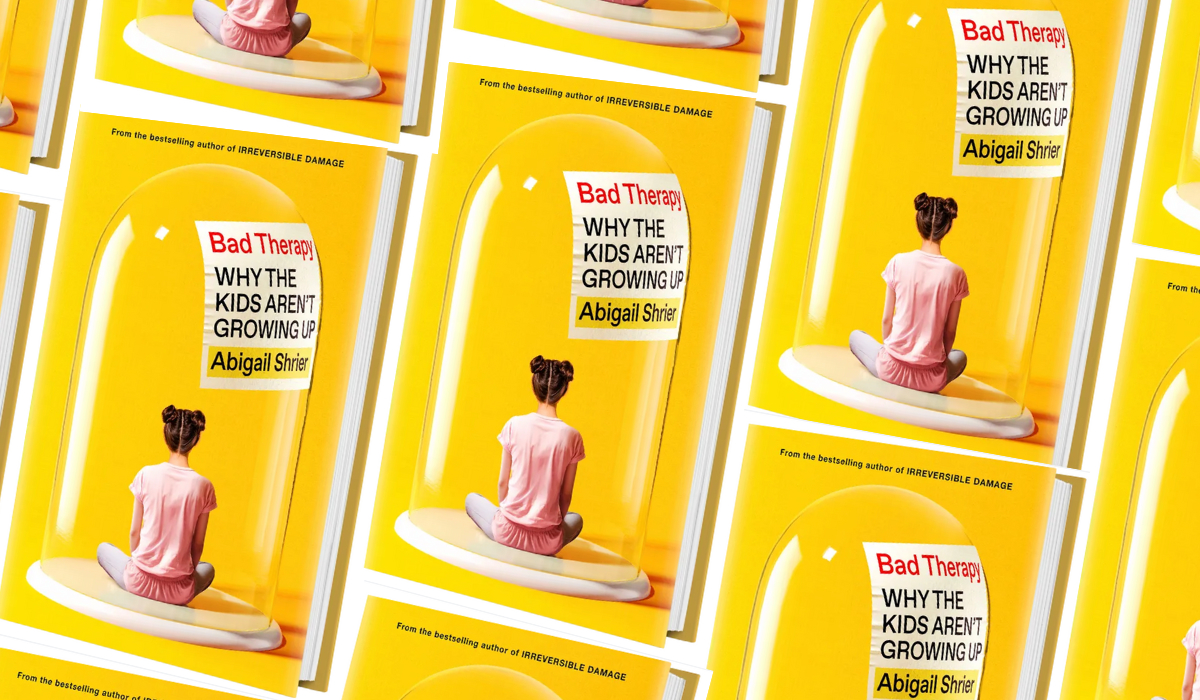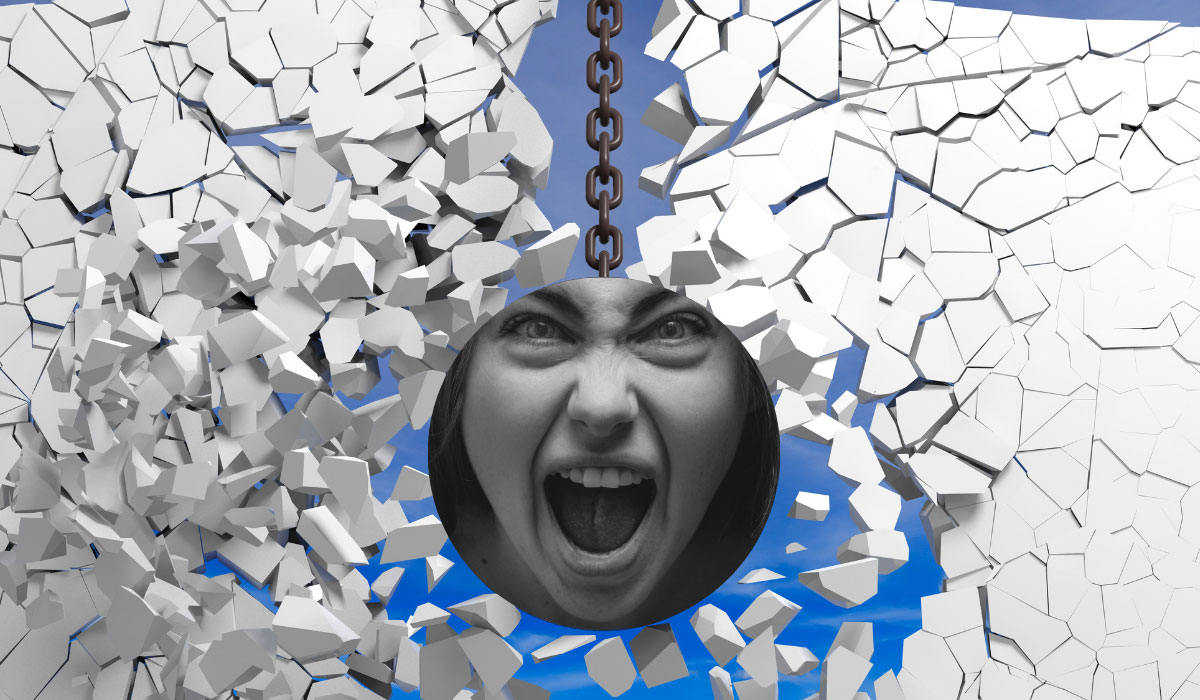‘Bad Therapy’ Exposes Why Gen Z is So Sad

Have you ever wondered why so many Gen Z seem exceedingly sad, lonely and depressed? “Bad Therapy: Why the Kids Aren’t Growing Up,” an exhaustively researched new book from Abigail Shrier, exposes the root causes, which, you guessed it, stem largely from the bad advice dished out by mental health professionals. Social-emotional learning in schools and overly permissive parents come in close second as culprits.
Just to note, in her author’s note, Shrier distinguishes between the “young mental health crisis,” those kids who truly suffer from serious mental illness and require psychiatry, and the larger group of kids who probably don’t. She starts out talking about iatrogenesis, which is basically when treatment is applied to people who don’t need it, similar to getting an X-ray you don’t need, and how it can backfire. This introduces the concept that perhaps kids being led to believe that they need therapy when they’re fine might have negative consequences.
How Rumination Can Be Bad for You
What could go wrong? Well, as it turns out, plenty. This generation is “far less likely to date, obtain a driver’s license, hold down a job or hang out with friends in person than millennials were at the same age,” Shrier reports.
She blames therapy from therapists who emphasize talk therapy and constant rumination (keep re-hashing the bad) as having had a negative effect on kids. Her research indicates that it’s turned many into a worrying group of young adults. You know, the kind that constantly call home to get approval from their parents, check their Apple watches to make sure their heart rates are within the correct ranges and are prone to panic attacks.

SEL: The Emotional Wrecking Ball
As if the therapy from therapists who are profiting from this troubled generation wasn’t bad enough, she explains how schools then got in the act and started counseling students without parental permission. Social emotional learning started innocently over a decade ago as a teaching method that tried to make sure students were in the right frame of mind to learn. It quickly grew into constant emotional check-ins for students through invasive surveys, wellness apps and in-school therapy. SEL is in every subject in some schools—even in math class—because who cares if you get the answer correct as much as how you feel about the problem! Teachers, who are unequipped to handle therapy sessions with youth are now dishing it out, she found. The takeaway: constant check-ins lead kids to think something must be wrong with them.
Permissive Parents Lead to Tyrannical Kids
Finally, Shrier looks at how parents have contributed to this mess. You know the ilk — the liberal parents who let their kids have everything and tried to be friends with them instead of parents. Their children have often turned into tyrants, her research found. Parents who fared better limited screen time, set boundaries for their children and gave them chores; their kids tended to have an easier time developing into independent adults.
A Follow-Up to ‘Irreversible Damage’
This book is a follow-up (and good companion) to Shrier’s acclaimed bestseller, “Irreversible Damage: The Transgender Craze Seducing Our Daughters” (2020). For “Irreversible Damage,” which the LGBTQ crowd roundly attacked and tried to censor, Shrier interviewed hundreds of transgenders, parents, and professional health experts. She determined how “gender dysphoria,” which was an exceedingly rare condition mostly affecting males, suddenly became an epidemic among teenage girls. Her research concluded that this was a social contagion that went viral among teen girls who wanted to fit in as victims— the cool-thing-to-be in the 2020s. If youths just wait to go through puberty, most young people grow out of this phase, she concluded after interviewing detransitioners and doctors. Giving young children hormones to stop development or sex changes, which the Biden Administration’s Assistant Secretary of Health Dr. Rachel Levine recommends, is dangerous as it risks turning the teen into a permanent, lifelong patient who is potentially sterilized. A major study out this week, entitled Most gender-confused children grow out of it, vindicated her findings. She also explains how elevating the rights of transgenders over those of women—even violating women’s safe spaces—has tragic and unforgivable consequences.
Lastly, both books read like fact-filled novels, not textbooks. Shrier writes beautifully with humor, weaving in personal experiences when relevant. “Bad Therapy” and “Irreversible Damage,” should be required reading for parents, school administrators and teachers, but everyone really. If we want to understand and fix the next generation, we need to understand the root problems and chart a new course.
Categories
Archives
- April 2024 (6)
- March 2024 (8)
- February 2024 (10)
- January 2024 (8)
- December 2023 (7)
- November 2023 (9)
- October 2023 (7)
- September 2023 (6)
- August 2023 (11)
- July 2023 (9)
- June 2023 (8)
- May 2023 (7)
- April 2023 (5)
- March 2023 (8)
- February 2023 (5)
- January 2023 (5)
- December 2022 (7)
- November 2022 (8)
- October 2022 (3)